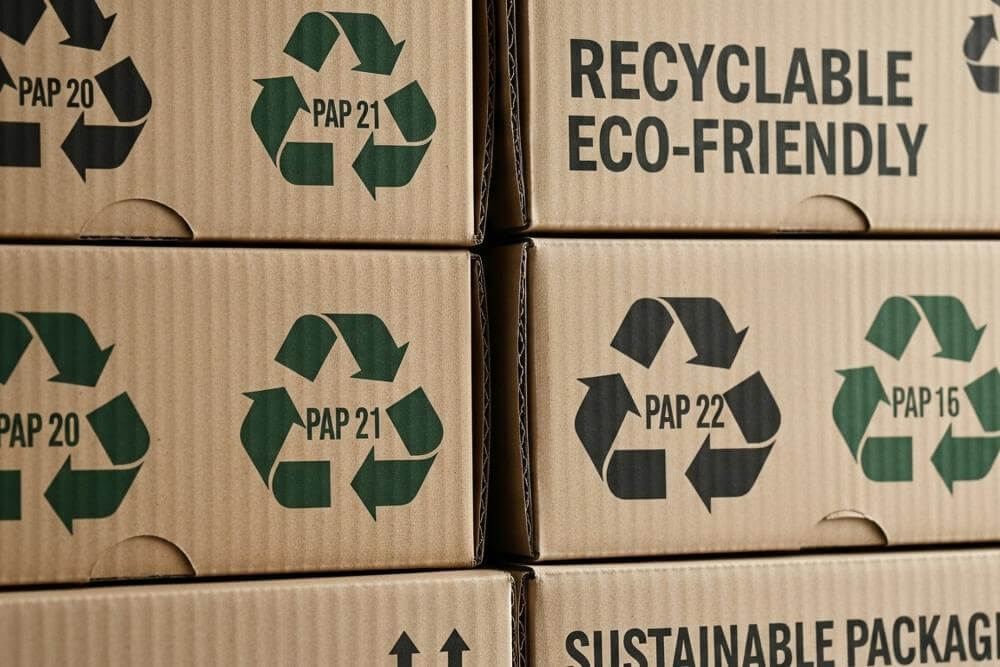
What environmental accreditation schemes are available for my organisation?
Climate change has become a key issue for us all. With scientific reports being released every day, we now know more about the changes that are happening to the Earth’s system than ever before. We are also being warned about the projected risks of uncontrolled climate change. It has never been more important to be climate smart, both to protect your business, resources, and the quality of life for future generations.
The latest report by the National Oceanic and Atmospheric Administration (NOAA) in the USA has found that levels of carbon dioxide, methane and nitrous oxide continued to grow at historically high rates in 2022. Carbon dioxide is now 50% higher than pre-industrial levels. With 2022 being the 11th consecutive year it increased by more than 2 ppm, the highest sustained rate of increases in the 65 years since monitoring began. NOAA scientists state that carbon dioxide is ‘by far the most important contributor to climate change’ and conclude that a quarter of the carbon dioxide emissions from fossil fuels to date have been absorbed by the world’s oceans, contributing to ocean acidification, which may threaten some fisheries and aquaculture around the world.
So, what can you do to help?
Although the science may sound complicated and the challenge daunting there are a number of environmental accreditation schemes that can help you make your business more climate resilient, improve the reputation of your brand and give you a competitive advantage, especially in industries where sustainability and environmental responsibility are becoming increasingly important to consumers.
Achieving an environmental accreditation can require a significant investment of time, resources, and effort, which is why it is important to ensure that you invest your efforts in a recognised scheme that supports the goals that you have for your business and enables you to continually improve your environmental performance over the long term.
Which accreditation scheme should I choose?
There are several environmental accreditation schemes available for small businesses. These are some of the better recognised ones:
So, there are a number of options open to businesses that want to reduce their environmental impact in a way that can be quantified, reported and proven. Each scheme has its own requirements and benefits. Its important to choose a scheme that is the right fit for you and your business.

Developing an EPD can ensure you meet tender requirements, as well as providing an opportunity to understand and reduce the true environmental impact of your products.

Understanding the Transition from SECR to UK SRS. The UK government is replacing the current Streamlined Energy and Carbon Reporting (SECR) framework with the more comprehensive UK Sustainability Reporting Standards (UK SRS).

As part of its Net Zero Supplier Roadmap, the NHS has announced that by April 2027, all suppliers, including those providing food, medical products, and services, will be required to submit a comprehensive Carbon Reduction Plan (CRP).

Carbon Sense is your expert partner in carbon reduction. We support UK organisations to understand, measure, and reduce their carbon footprint, save energy, and make sense of sustainability. With a practical, no-nonsense approach, we help you achieve Net Zero goals while protecting your bottom line.

"We are excited to support the awards this year and are honoured to sponsor the Carbon Positive category. At this crucial time, carbon mitigation and an embedded strategy to achieve Net Zero are vital to avoid further climate change catastrophes".

In a world increasingly focused on sustainability, Carbon Literacy has emerged as an essential tool for businesses seeking to reduce their environmental impact. Carbon Sense understands the value and benefits of Carbon Literacy Training whether for a team within your business, or for your entire organisation.

A carbon reduction or decarbonisation plan is a set of strategies and actions that an organisation, community, or government implements to reduce its carbon footprint and mitigate the effects of climate change.

Carbon credits, and their differences, is a frequent topic of discussion. When developing a sustainability strategy or communicating about sustainability, its essential for businesses to understand these differences

Pathway to Net Zero, launched in November 2023 is a fully funded support programme helping businesses adopt more environmentally conscious processes and move towards becoming Net Zero.

The future still remains uncertain so considering options to reduce energy consumption to rely less on the grid is becoming more and more necessary.

Climate change has become a key issue for us all. With scientific reports being released every day, we now know more about the changes that are happening to the Earth’s systems.

The impact of the industrial revolution has created a climate where pretty much all our activities have an impact on the environment.

By reducing your organisation’s carbon footprint you can reduce your impact on the environment and resources.

There is a wealth of research being undertaken by the leading academics studying climate change and assessing how we can build climate resilience and reduce risk.

It is important to get good advice to ensure that you avoid the common pitfalls and have a plan that works for you and achieves genuine environmental benefits.